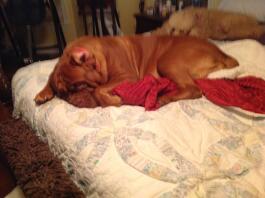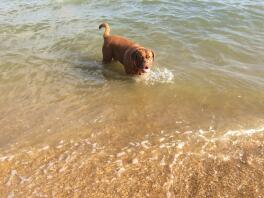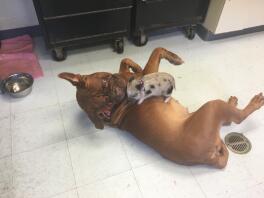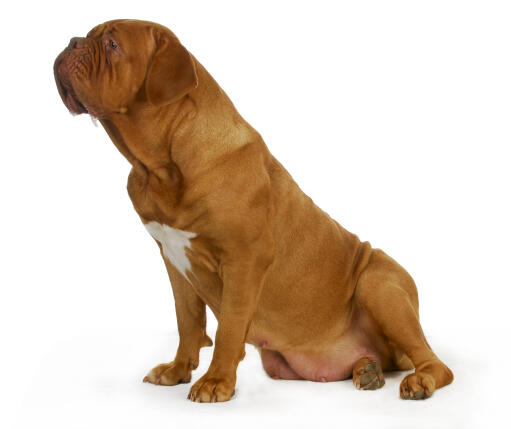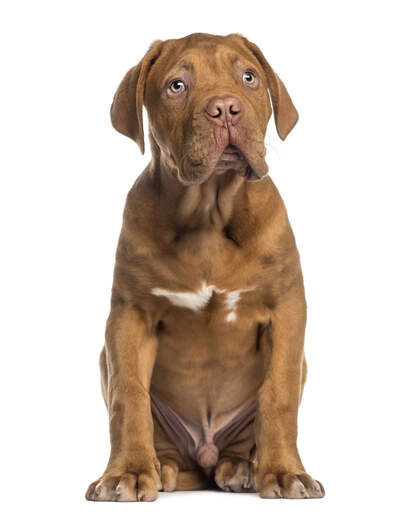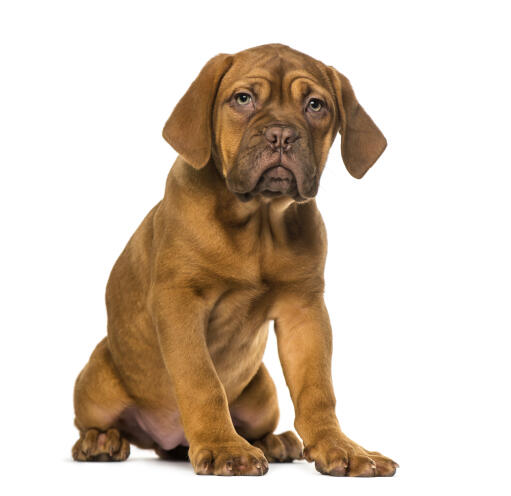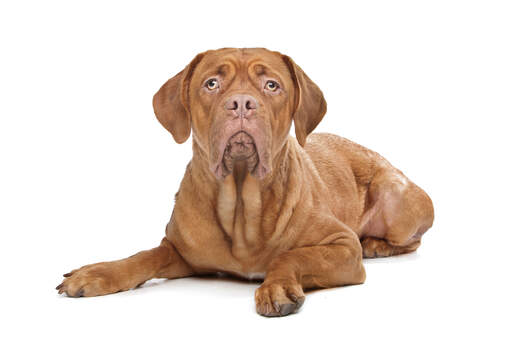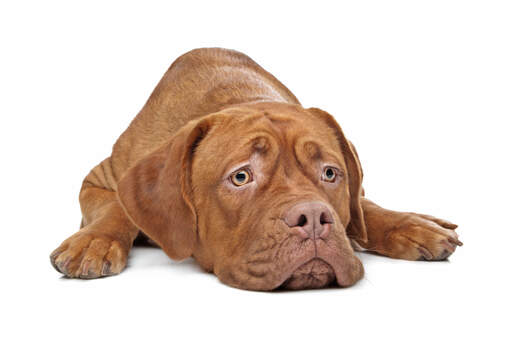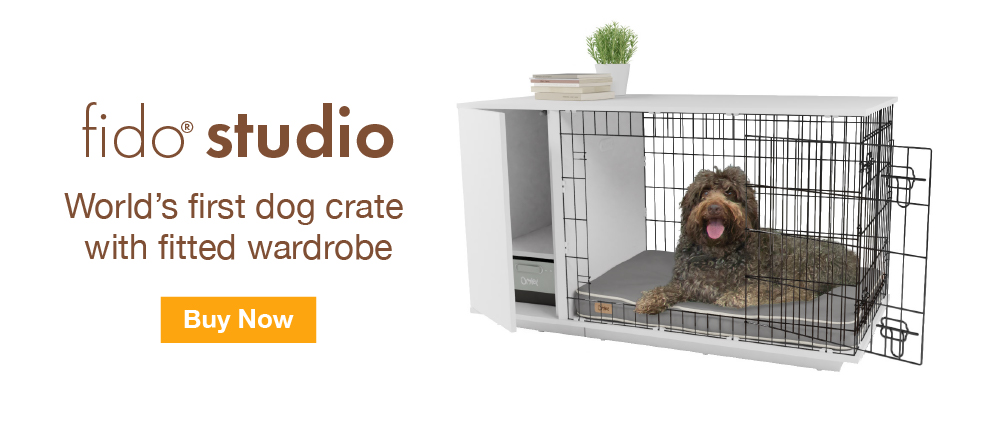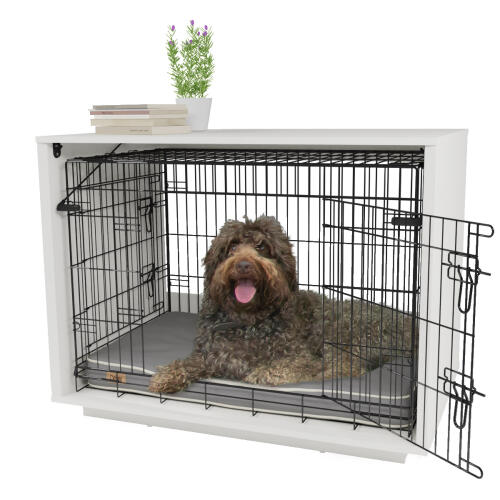Dogue de Bordeaux Dogs





History
The Dogue de Bordeaux is a mastiff-type breed first developed in the Bordeaux region of France. Its origins go back to the 14th century, but the current breed was not established until 1920. The DDB was used for carting and pulling objects, and for guarding sheep and goats and for watchdog duties on property. Breeders rejected puppies with black faces, as they were seen as being too close to English Mastiffs, and a red “mask” and pink nose became the standard look instead. These are now established features in the breed.
Behaviour
The DDB is large, with a muscular and strong body. It is a very gentle dog and is affectionate to its family, being very good with children in the home. Smaller children need to be wary, however, as the sheer size and enthusiasm of the DDB can knock a small child over. They are devoted dogs and want to be with their owners at all times. Left alone they can become destructive, through loneliness. They are usually wary of strangers in the home, and make excellent watch and guard dogs. They rarely attack unless they have been trained to do so. The mere presence of this dog is often enough to deter intruders.
This is a powerful dog, meaning that obedience training is vital. This needs to begin on day one and maintained consistently, as the DDB is not the easiest breed to train, having a natural stubborn streak. Teaching a Dogue de Bordeaux to heel is one of life's great challenges, but once that has been mastered, the rest will be easy! Teaching them the basics, such as sit, and focusing on socialization with people and dogs are the priorities in the early stages of training. A calm, confident approach is best. Once trained, the breed does well in obedience tasks, carting, and water rescue. They also make great therapy dogs, and will happily cuddle up, attempt to sit in your lap, and snooze on your bed or sofa.
The DDB drools constantly, and this puts off some would-be owners. The dogs need a fair amount of exercise each day, but are not too demanding as long as they have the chance to run around and play each day.
The DDB’s short coat needs regular brushing to remove dead hair, but these dogs don't shed much. Drool, rather than hair, is the big issue with this breed.
Temperament
DDBs are calm and reserved. They are lap dogs in the bodies of giants and like to climb onto the sofa with you, drooling and licking you with slobbery affection. If this doesn't put you off then you can be happy knowing that your Dogue will be devoted to you and your family!
Early socialization is important to prevent shyness or aggression. Dogues will rarely start a fight, but their proud nature means they won't back down either. Combined with their immense power, this means they can cause serious injury and even kill other dogs, which is why that early socialization and training are so important.
Health Problems
Possible issues include canine hip dysplasia (CHD), elbow dysplasia, allergies, cancer, heart disease, bloat, epilepsy, seizures, entropion (inward rolling of eyelid which causes irritation to eyeball), ectropion (outward rolling of eyelid which can cause watery eyes and irritation to eyeball through dryness), and breathing-related issues arising from their head shape.
Breed Details
- Status: Common
- Life Expectancy: 5 - 8 years
- Weight: 120 - 144 pounds
- Rare: No
- Coat: Short
- Grooming Requirements: Once a week
- Town or Country: Country
- Minimum Home Size: Large House
- Minimum Garden Size: Small to Medium Garden
- Breed Type: Working Dog
- Size: Giant
- Energy Level: Low
- Exercise Required: Up to 1 hour
Dogue de Bordeaux Pictures
